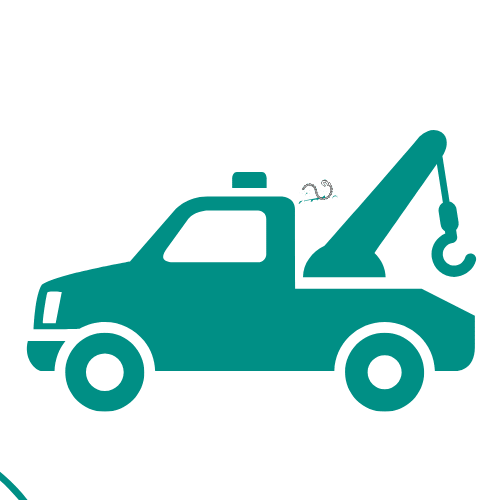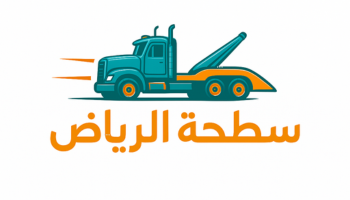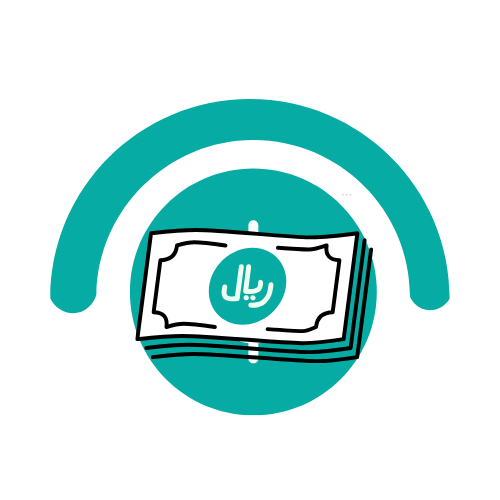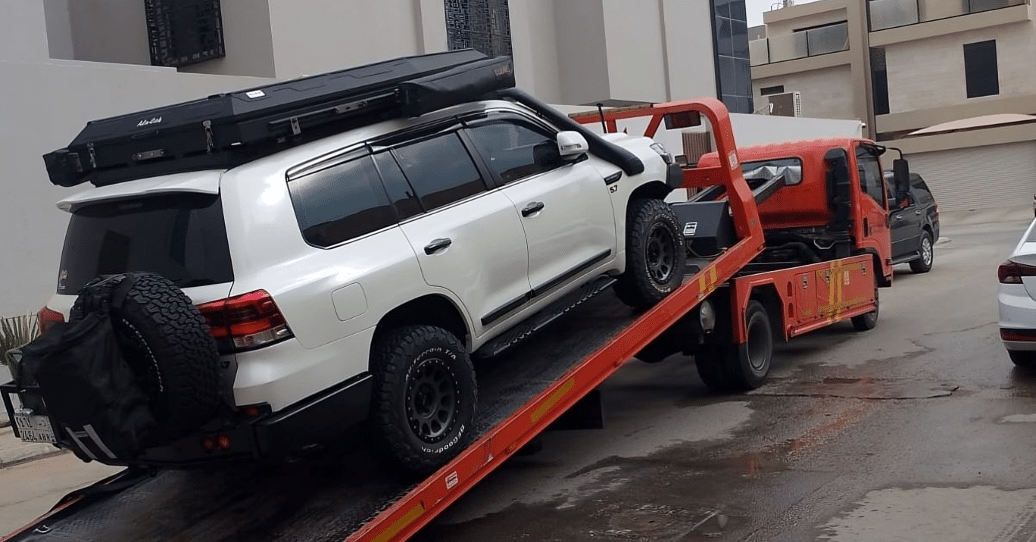Towing might seem simple at first glance, but there’s more to it than just hooking up and hitting the road. Understanding the basics of towing safety not only protects you and your vehicle but also everyone else sharing the road with you — especially on busy streets in cities like Riyadh. Let’s break it down into clear, simple steps so you can tow with confidence.
What Is Towing Safety and Why It Matters
Towing safety is all about making sure your vehicle, trailer, and driving habits work together to prevent accidents. It matters because when you’re towing, you’re dealing with extra weight, extra length, and a whole new set of challenges on the road. Skipping these safety steps could lead to dangerous situations, like swaying trailers, blown tires, difficulty stopping in time or accident recovery in Riyadh. So, taking a few moments to prepare and check everything can make all the difference — especially when you need roadside assistance in Riyadh.
What Is the Safety Factor for Towing or Pulling?
The safety factor is like your built-in cushion — it’s the extra strength designed into your towing setup to handle more than just the exact weight you’re pulling. In simple terms, it means you shouldn’t push your vehicle right up to its maximum limit. Always aim to tow below your vehicle’s rated capacity, giving you some breathing room in case of sudden stops, strong winds, or tricky road conditions. It’s that margin that keeps things stable and safe and prevents the need for emergency towing services.
What Is the Safe Towing Limit for Your Vehicle?
Every car, SUV, or truck has a towing limit, and knowing yours is key before you even think about hitching up. You can usually find this number in your owner’s manual or on a sticker inside the driver’s door. But don’t just stop at the number — consider the total weight, including passengers, gear, and the trailer itself. And remember, just because your truck can tow 3,500kg doesn’t mean it should on every trip, especially on long-distance towing trips where safety margins matter even more.
Towing Capacity vs. Load Weight: Know the Difference
Here’s where it gets a little tricky if you’re not careful. Load weight, on the other hand, is the actual weight you’re pulling — and it includes everything: the trailer, cargo, fuel, and any extras you’ve packed in. Mixing these up is a common mistake, but knowing the difference helps you avoid overloading and keeps your towing experience smooth and safe.
What to Do Before You Tow
Towing might look easy, but there’s a little homework to do before you hit the road. Whether it’s your first time or you’re still building confidence, these basics will help make sure your trip is smooth, safe, and stress-free.
Checklist for First-Time Towers and Beginners
Before you even think about driving off, take a moment to go through this simple checklist:
- Double-check your hitch and make sure it’s locked in place or consider safer options like flatbed towing.
- Test your trailer lights — brake lights, indicators, and tail lights.
- Inspect your tires on both the vehicle and trailer for proper pressure.
- Secure your load so nothing shifts while driving.
- Attach and cross your safety chains.
- Make sure your brake controller is connected and working.

Taking a few extra minutes here can save you a lot of trouble later — especially if you’re heading out of Riyadh toward longer highway stretches.
What Do I Need to Know Before Towing?
First, know that towing changes everything about how your vehicle handles. You’ll need more time to stop, extra space to turn, and a slower pace overall. Don’t rush — stay relaxed and deliberate in every move. Practicing a few turns and braking in an open space before your trip can help you get comfortable. And always check the weather — wind and rain can make towing much trickier.
What Are Three Things You Should Check Before Towing a Trailer?
If you remember nothing else, make these three checks your priority:
- Connections: Is your hitch secure? Are your safety chains crossed and locked?
- Lights: Do all trailer lights work properly? Blinkers, brake lights, and running lights?
- Tires: Are both your vehicle’s and trailer’s tires properly inflated and free from damage?
These basics keep you, and everyone else, much safer on the road and are among the top reasons to always keep a towing company number handy.
How to Choose the Right Towing Equipment
Not all towing gear is the same. Make sure your tow hitch matches the weight you plan to pull. A weight-distributing hitch can be a smart investment if you’re hauling heavier loads — it keeps things balanced and stable. And don’t forget about your brake controller; it helps your trailer stop smoothly alongside your vehicle. Choosing quality gear now avoids headaches later.
Tow Straps, Safety Chains & Brake Controllers
Tow straps are handy, but they need to match your load’s weight. Always check the rating before using one. Safety chains are not optional — they’re your backup if the hitch fails, so cross them under the tongue for extra protection. As for brake controllers, they adjust your trailer’s brakes to work with your vehicle’s, giving you more control, especially when going downhill or stopping suddenly.
Understanding the Safety Factor of a Tow Strap
Think of the safety factor like giving yourself a little breathing room. If your load weighs 2,000kg, your strap should handle well above that — ideally with a safety factor of 2 or 3 times the load. This cushion helps handle sudden jerks, hills, and uneven roads without snapping.
Matching Your Vehicle with the Right Trailer or Caravan
Your vehicle can only tow so much, and pushing past its limit is asking for trouble. Always check your towing capacity in the owner’s manual and stick well below that number. When choosing a trailer or caravan, consider its fully loaded weight — not just the empty figure. Matching them correctly means smoother handling, better fuel efficiency, and a much safer trip overall.
Towing Equipment and Setup
Getting your gear right is half the battle. Here’s how to set things up the right way before you roll out.
Essential Trailer Towing Equipment
At the very least, you’ll need a strong hitch, safety chains, a brake controller, and working trailer lights. For heavier loads, a weight-distributing hitch and sway control bars can make your drive feel a lot steadier.
Safe Hitching Practices
When hitching up, always double-check that the hitch ball size matches the trailer coupler. Lock the latch, insert the safety pin, and crank the tongue jack down until it’s firmly seated. Give it a good shake to be sure everything’s tight before driving off.
Using Safety Chains Correctly
Safety chains should be crossed under the trailer tongue, forming a cradle that can catch the trailer if the hitch fails, specialized winch truck towing services can safely recover your trailer. They should have just enough slack for turning, but not so much that they drag on the ground. And always clip them securely to the tow vehicle — never just loop them around.
What Is the Limiting Factor for Towing Safely?
The real limit is not just about the numbers. It’s about the weakest link in your towing setup. It could be your hitch, your tires, your brakes, or even your driving habits. Always stay within your rated capacities, but also listen to your vehicle — if it feels strained or unstable, it’s time to slow down or lighten the load.
Safe Driving Tips While Towing
Towing Tips for Beginners
If you’re new to towing, the best advice is simple: take it slow and steady. Always remember you’ve got extra weight behind you, so every move — whether it’s accelerating, braking, or turning — needs a little more time and space. Use your mirrors often, and make sure they’re properly adjusted so you can keep an eye not just on your truck, but on the entire load. Don’t rush lane changes or turns, and always signal earlier than usual. It’s not about getting there fast — it’s about getting there safely.
How to Drive with a Trailer
Driving with a trailer is a different game. First, give yourself extra distance from the vehicle ahead. Braking will take longer, especially going downhill. Use tow/haul mode if your vehicle has it; it helps smooth out acceleration and braking. And when you’re on the highway, stick to the right lane and keep your speed moderate — this not only keeps you safer but also reduces trailer sway.
How to Reverse with a Trailer or Camper
Backing up a trailer can feel tricky at first, but with patience, it gets easier. Start by making small, deliberate steering movements. If you get confused, no worries — pull forward to straighten out and try again. If things get really tough, it’s okay to ask someone experienced to spot you or even lend a hand.
Maintaining Control on Highways, Hills, and Curves
When you’re towing through curves, hills, or highways, control is key. Take curves wider and slower to avoid clipping corners. On hills, downshift early to maintain momentum without overworking your brakes. And on highways, keep an eye on the wind — sudden gusts can push your trailer around. If you feel sway, gently ease off the accelerator; never jerk the wheel or brake hard. Stay calm, steady, and focused, and you’ll handle the road like a pro.
Trailer Towing Safety During Your Trip
Monitoring Load and Braking
Throughout your trip, keep checking that your load is balanced and secure. An uneven load can cause sway or put extra strain on your brakes. Always test your trailer brakes before hitting the road and adjust them if needed. Make it a habit to stop every now and then — check the straps, lights, and tire pressure. It only takes a few minutes but can save you from major trouble later.
Avoiding Sway and Jackknifing
Sway is one of the biggest risks when towing. To avoid it, distribute the weight evenly, keep your speed moderate, and never overload your trailer. If you feel the trailer starting to sway, don’t panic — gently let off the gas and keep the steering wheel steady until it stabilizes. Jackknifing usually happens during sharp turns or sudden stops, so always take your time and plan your moves carefully.
Driving a Pickup Truck or Heavy-Duty Tow Vehicle Safely
Driving a heavy-duty tow vehicle means you’ve got power, but with great power comes great responsibility. Stay mindful of your longer stopping distance and wider turns. Adjust your mirrors so you’re watching the load and the traffic around you. Avoid sudden moves, and remember — smooth driving keeps both your truck and your trailer in control.
Towing a Travel Trailer or Camper on Long Trips
On longer trips, it’s even more important to pace yourself. Plan for more frequent breaks to check your equipment and give yourself and your vehicle a rest. Stay hydrated, stay alert, and don’t push to cover too many miles in one go. After all, towing is a marathon, not a sprint — enjoy the journey as much as the destination.
Choosing a Safe and Reliable Towing Company
When to Call a Professional Tow Truck Driver
Sometimes, it’s best to let the pros handle it. If your trailer breaks down, your load is oversized, or you’re stuck in a tricky spot, calling a professional tow truck driver is the safest option. They have the right gear and know-how to get you out without risking damage to your vehicle or others on the road.
What to Expect from a Safe Towing Company
A trustworthy towing company will show up on time, inspect your setup carefully, and secure everything before moving. They’ll use safety chains, proper straps, and check that your lights are working. Plus, they’ll explain what they’re doing, so you feel confident your vehicle and trailer are in good hands.
Emergency Towing vs. Scheduled Trailer Transport
Emergency towing is for breakdowns and urgent situations, while scheduled trailer transport is great when you’re planning ahead — like moving a camper across the state. Both services should prioritize safety, but with scheduled transport, you can expect more preparation, route planning, and even insurance coverage. So, whether it’s an emergency or a planned trip, choose a company that values your cargo as much as you do.
Final Thoughts on Towing Safely
Why Preparation Is the Key to Safe Towing
If there’s one thing seasoned towers will tell you, it’s this — preparation makes all the difference. Before you even hitch up, take time to check your trailer’s load balance, inspect your hitch, and test your lights and brakes. Yes, it might feel like a lot at first, but these small steps can prevent big problems later. And remember, even things like investing in a good anti-sway system can make your trip smoother and a whole lot safer. Think of preparation as your best insurance for a stress-free towing experience.
Common Mistakes to Avoid
Even experienced drivers slip up sometimes, so it’s smart to be aware of common mistakes from the start. One big one? Overloading or unevenly loading your trailer — this can cause sway and make your rig hard to control, especially in windy conditions. Another? Not giving yourself enough space to stop. Always double your normal following distance when towing. And whatever you do, avoid jerky movements, especially while turning or backing up. Slow, steady, and patient driving really is the golden rule here.
Helpful Resources for First-Time Towers
Luckily, you’re not alone in this. There are plenty of helpful resources out there for beginners. Start by checking your vehicle’s manual — it often has towing guidelines specific to your make and model. Online forums and towing communities are another goldmine of tips from people who’ve been there, done that. And don’t hesitate to ask a neighbor or friend who’s experienced — sometimes a quick demo or friendly advice can make things click much faster than reading a guide. And finally, practice! Find an empty parking lot and spend some time getting the feel of backing up and maneuvering. It’ll boost your confidence before you hit the road.
What is the maximum towing speed allowed in Saudi Arabia?
In Saudi Arabia, the general speed limit for vehicles towing trailers is lower than for regular vehicles. It’s best to stay below 80 km/h on highways and even slower in city traffic for safe towing.
How do I know if my vehicle can tow a trailer?
Look for the towing capacity and ensure the total weight you’re pulling (including load and trailer) is below that limit.
Do I need special mirrors for towing in Riyadh?
Yes, if your trailer is wider than your vehicle, you’ll need extended towing mirrors to maintain clear visibility of your load and the traffic around you.
Is it legal to tow a car with a rope in Riyadh?
Inspect tire pressure (as heat can cause overinflation), ensure the cooling system is in top shape, and check your trailer brakes. Riyadh’s extreme temperatures put extra stress on vehicles.
What is trailer sway and how can I prevent it?
Trailer sway happens when the trailer starts to fishtail at speed. Prevent it by loading weight evenly, using sway control bars, keeping speed moderate, and never overloading.
Do I need a brake controller to tow a trailer in Saudi Arabia?
Yes, if your trailer weighs more than 750 kg, Saudi regulations require it to have its own braking system, controlled by a brake controller in your vehicle.











